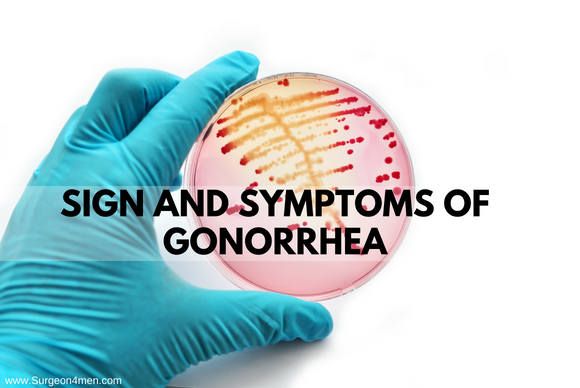Sign and Symptoms of Gonorrhea
Gonorrhea is regarded as the second most frequently reported sexually transmitted infection among US teens. It affects both male and females. The onset and severity of infection depend largely on the site of bacterial inoculation. Generally, the symptoms begin to manifests within 4 weeks of initial exposure; though about 10% of all reported cases are asymptomatic.
Gonorrhea symptoms in men:
Gonorrhea like any other sexually transmitted infection begins with exposure to bacterial agent during an unprotected sexual encounter with an infected contact. Some key symptoms suggestive of an ongoing gonorrhea infection are:
- Penile discharge that may range in color from yellow to green and is usually think in consistency
- Painful or burning micturition (urination)
- Discomfort in the penile region
It is noteworthy that avoiding sexual contact with your partner is strongly advised if you are suspecting an active STI. Make sure to speak to a registered practitioner who can advise appropriate antibiotics after properly investigating your infection ads gonorrhea symptoms may mimic clinical presentation of other sexually transmitted infections. Abstinence is also important to minimize the risk of reinfection.
Why is it important to treat gonorrhea?
It is strongly indicated to diagnose and treat gonorrhea in a timely fashion as untreated or chronic gonorrhea is associated with a wide range of complications.
These include:
- Localized spread of infection to surrounding tissues such as the prostate gland, testicles, urinary bladder and seminal vesicles
- Inability to urinate
- Formation of abscess in the rectum or urethral region
- Testicular swelling that is painful and may interfere with sexual function
Rectal gonorrhea is marked by the spread of gonorrhea to the rectal region via anal or oral intercourse with an infected contact. Classic symptoms of rectal gonorrhea are:
- Anal discharge
- Soreness or itchiness around the anal region
- Severe pain in the anal region that worsens during defecation
Gonorrhea also spreads via oral contact as indicated above and may present with a variety of symptoms including sore throat or inflamed throat.
Gonorrhea symptoms in women:
Gonorrhea in women spreads through sexual contact with an infected contact but it is not always symptomatic. Some common symptoms that are the hallmark of gonorrhea infection in women are:
- Glandular swelling in the inguinal region especially around vaginal region
- Anal swelling, itchiness or discharge
- Foul smelling vaginal discharge that is usually thin in consistency and may range in color from yellow to green
If you are experiencing above mentioned symptoms, it is highly recommended to communicate with your partner and seek treatment as a couple to prevent reinfection. Untreated gonorrhea in females is associated with pelvic inflammatory disease and possible fertility disorders such as permanent sterility. If a pregnant woman develops gonorrhea infection, the risk of developing complications in the pregnancy; ranging in severity from ectopic pregnancy, premature birth, still birth etc. In addition, babies born to infected mothers are born with a wide range of complications; including but not limited to, blindness, inflamed umbilical cord, or even early infantile death.
How to minimize the risk of contracting Gonorrhea infection?
Some helpful tips that reduces your risk of contracting gonorrhea and other sexually transmitted infections are:
- Practicing safe sex – i.e. avoiding unprotected sexual intercourse with multiple partners
- Avoiding risky behaviors such as use of drugs, engage in relationships with sex workers etc.
- For any and every chance encounter, make sure you use condoms or physical barrier method to avoid getting in contact with the body secretions or bacterial agent
>
